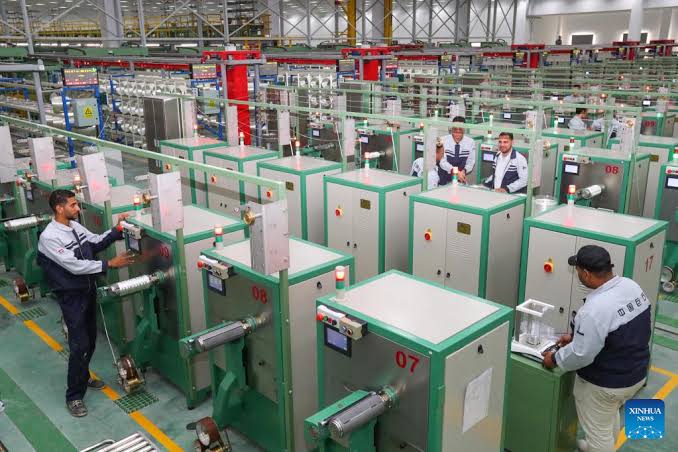The state is developing economic zones inked to the Suez Canal Corridor due to its strategic importance, together with providing various capabilities and services in all key economic areas in order to attract more investments, create jobs and increase exports.
Sokhna Industrial Zone is ready for heavy industries as its infrastructure, in line with international specifications, its proximity to the New Administrative Capital, and its integration with the Port of Sokhna is a gateway to global markets.
Chairman of the Suez Canal Economic Zone (SCZone) Waleed Gamal Eddin said recently that discussions are currently underway for a Turkish industrial zone within the SCZone.
The zone is already home to the Turkish Hayat Egypt, which makes healthcare products. Talks are also underway to bring in big-name Turkish textile and clothing companies in West Qantara Industrial Zone, Gamal Eddin said.
During a recent meeting with Turkish Ambassador in Cairo Salih Mutlu Şen, the head of the SCZone presented the competitive advantages offered by the zone to its investors, including its ownership of six maritime ports on the Red Sea and the Mediterranean, as well as four industrial zones comprising 21 different industrial sectors.
The SCZone chief affirmed the authority’s commitment to local and foreign investors in all affiliated industrial zones and to industrial localisation in targeted sectors.
Industrial projects in SCZone
The Egypt FanYang factory for textile printing and dyeing is part of the China-Egypt TEDA co-operation zone near AinSokhna.
The factory will produce 30,000 tonnes of clothing fabrics, blankets and home furnishings worth $150 million annually.
The factory cost $60 million to build and stands on 120,000 square metres.
Also in the TEDA zone is a new fibre glass production line from Jushi-Egypt, which is affiliated with the Chinese company Jushi.
The factory ranks fourth worldwide for the production of fibre glass, according to Jushi CEO Woo Ben.
The factory exports its products through Egypt’s ports.
The new production line, which opened last March, occupies a space of 120,841 square metres and includes an oven, a mill for quarried materials and storage space of the final product.
The new line cost $320 million and will produce 200,000 tonnes of material annually, Woo Ben added in recent press statements, adding that this project is part of economic co-operation and trade between Egypt and China.
Also among the projects is a Mercedes-Benz logistics centre in Sokhna Industrial Zone which attracts investments from major international companies with a view to attaining the UN Sustainable Development Strategy (SDS) and Egypt Vision 2030.
CEO and president of Mercedes-Benz Egypt GerdBitterlich said the logistics centre is worth LE35 million and spans an area of 20,000 square metres.
Bitterlich said the centre, which can handle 12,000 cars annually, includes a vehicle storage area, spare parts facilities and a maintenance workshop.
Kadmar International for Shipping and Logistics is among major industrial projects in SCZone which handles containers, goods and cars, and processes foods for export, saidKadmar Group Vice Chairman Medhat el-Qady.
The $35 million project, which is designed to reduce carbon dioxide emissions partly through the use of solar panels, occupies an area of 109,000 square metres, el-Qady added.
SCZone jobs creation
The economic zone has created100,000 jobs at its 300 industrial and service facilities since its establishment.
The government intends to create an investment-friendly climate to increase economic growth and reduce unemployment, especially after the impact of the Covid-19 pandemic and subsequent wars in the region on the global economy.
In this context, the zone is an essential project for Egypt’s economy, offering various job opportunities and attracting foreign investments, ultimately leading to the country’s economic growth.






Discussion about this post